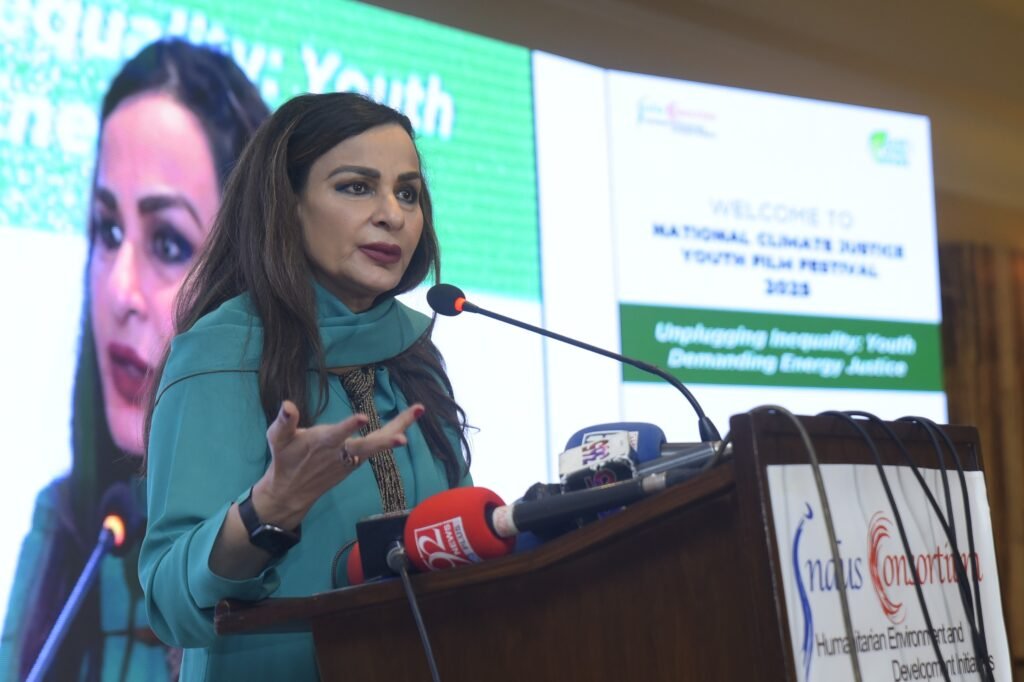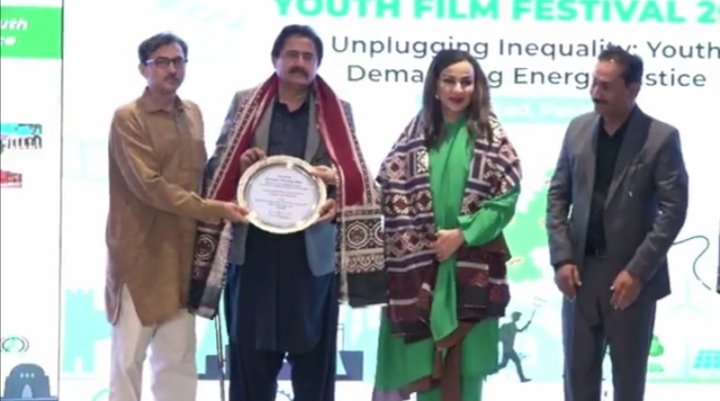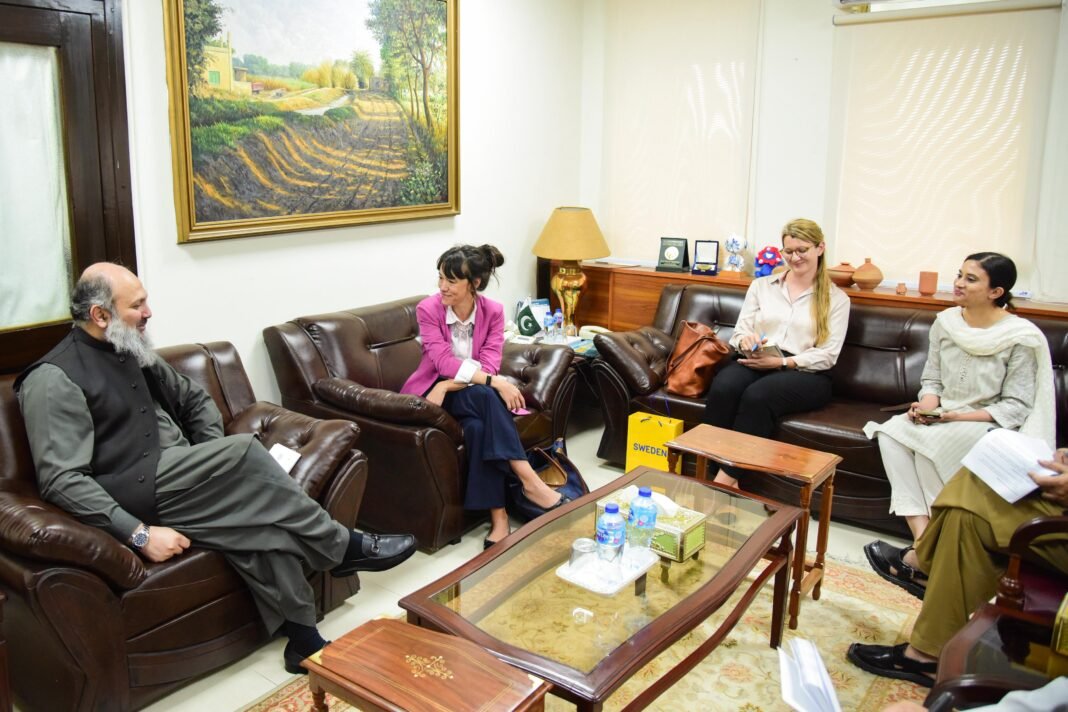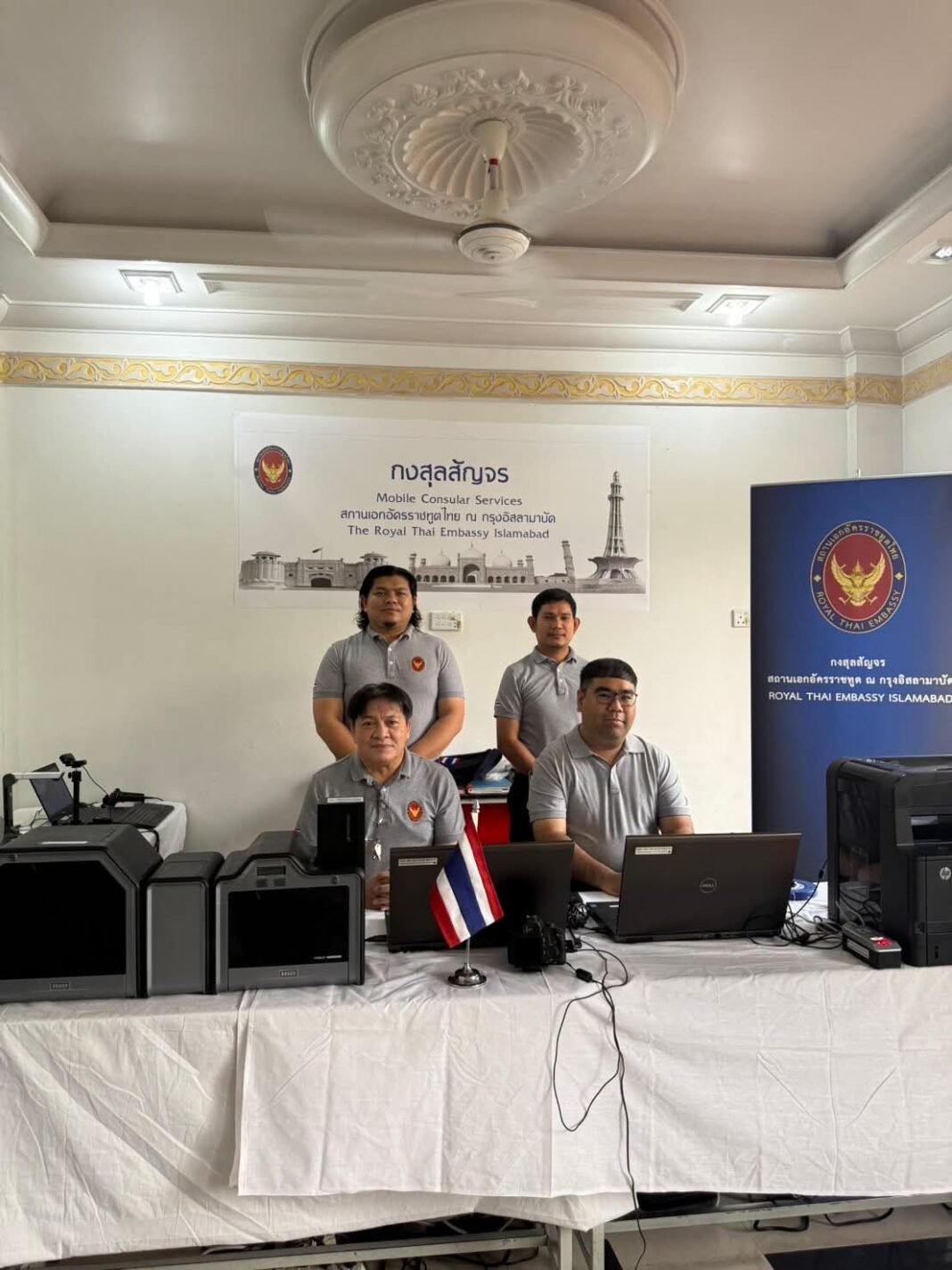
Islamabad — Senator Sherry Rehman delivered a powerful keynote address at the National Climate Justice Youth Film Festival 2025, warning that Pakistan faces an intensifying cycle of climate disasters without adequate global support, while destructive local policies are eroding the country’s natural defences.
“It is a privilege to stand here at the National Climate Justice Youth Film Festival,” Rehman began. “This festival is not just about films. It is about lived experience. It is about the voices of young people who are showing the world how climate breakdown is already reshaping their lives, their futures, and their communities.”
Senator Rehman painted a stark picture of Pakistan’s climate emergency:
“This year has brought calamity once again to a country already devastated by climate stress. Make no mistake: Pakistan’s 63 districts out of 169 have been flooded, more than 1/3rd of the country is under water. It is triggered by climate change, global warming, and surge in global emissions.”
“Trillions of dollars — USD 7 trillion every year — continue to subsidise the fossil fuel industry, the very industry driving this havoc worldwide. Yet when lives are lost in the Global South, when rivers burst their banks, and when livelihoods vanish, there is no real money for climate-vulnerable countries like Pakistan.”

She underscored that Pakistan now sits at the top of the global index of most climate-impacted countries, despite contributing less than 1% to global emissions. “According to the World Bank, we will need USD 348 billion by 2030 just to keep our heads above water,” she stressed.
Senator Rehman reminded the audience of the devastating precedent of 2022:
“So far in 2025, over 660 lives have been lost to catastrophic flooding since June 26. This is beginning to look like a tragic sequel to 2022, when one-third of the country was underwater. Once again, Pakistan is paying the price for a crisis it did not create.”
Turning to domestic environmental mismanagement, Senator Rehman spoke about deforestation
“Pakistan retains only 5% forest cover — the lowest in South Asia. Over the last 33 years, our forests have shrunk by 18%, dropping from 3.78 million hectares in 1992 to just 3.09 million hectares in 2025.”
“In Khyber Pakhtunkhwa, destructive woodlot and windfall laws have led to ruthless tree cutting. The so-called ‘billion tree tsunami’ has turned into an ecological tragedy. This is not afforestation; this is deforestation masquerading as policy.”
“In Chitral’s Rumbur Valley alone, 700,000 trees were felled on the false pretext of ‘unhealthiness.’ A district forest officer confirmed that 8.8 million cubic feet of timber was officially marked for cutting. In Swat, already 30–40% of forests are gone, and the timber mafia has plans to take 70%, exposing the valley’s ecosystem, its livelihoods, and its natural shield against heat and flooding.”
Senator Rehman stressed that forests are Pakistan’s first line of defence: “Trees are our “dhaal”, our shield against climate extremes. Yet instead of protecting them, we have allowed mafias and bad policies to strip our valleys bare. The rot is everywhere, and it is now killing people.”
Senator Rehman also warned about unchecked plastic pollution
“Plastic is choking our storm drains, blocking natural water flows, and worsening urban flooding. Globally, only 9% of plastics are recycled. The rest is dumped, often in poor countries like ours. Alternatives exist, but they are never allowed to scale.”
“Local air pollution is a serial killer. Brick kilns, unchecked construction, and vehicular emissions are destroying lungs and shortening lives. Particle pollution is within our control — unlike climate change, which is driven by the world’s biggest emitters.”
Senator Rehman urged the youth to see themselves not just as victims but as agents of change:
“We went to COP27 and fought for the Loss and Damage Fund because we are paying the rent for the world’s greed. But let me be clear: no one is coming to save us. We must build resilience with what we have, save lives with what we can, and protect our own green spaces.”
“This is our collective responsibility. From reducing plastic waste to defending our forests, change begins at home. But change must also come globally, from those most responsible for heating our planet.”
The National Climate Justice Youth Film Festival 2025 brought together young filmmakers, climate activists, and policymakers from across Pakistan to showcase stories of resilience, vulnerability, and the urgent need for justice.
Sohail Majeed is a Special Correspondent at The Diplomatic Insight. He has twelve plus years of experience in journalism & reporting. He covers International Affairs, Diplomacy, UN, Sports, Climate Change, Economy, Technology, and Health.





![logo-1[1]](https://globalnewspakistan.com/wp-content/uploads/2025/01/logo-11-e1737618310315-300x187.png)